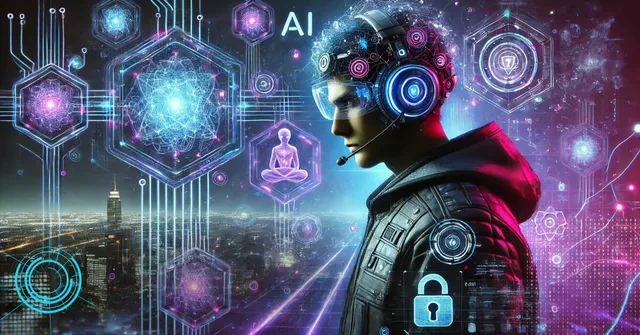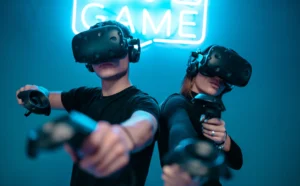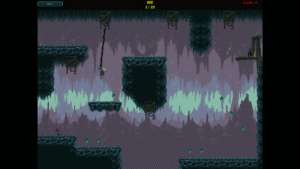Gaming has constantly been driven by technological advancements, but artificial intelligence (AI) is pushing the boundaries like never before. AI makes video games more immersive, responsive, and emotionally engaging, from smarter enemies that react to your actions to gameplay tailored to your preferences. Game worlds now react, learn, and change in real time. AI is used in level design and storylines to create dynamic environments and vibrant characters. Developers use AI to automate content development, enhance graphics, and monitor player behavior to increase engagement. AI is changing the way we play, whether you’re fighting enemies that learn your tactics or exploring environments that change based on your choices. This innovation revolutionizes the gaming experience.
Intelligent Enemies: Learning and Adapting
Enemy NPCs no longer follow predictable patterns or charge into walls. AI-driven behavioral systems allow enemies in games to learn and react in real time. These systems analyze combat strategies, weapon and path use, and player reactions to danger. The AI uses this information to flank, take cover, and alter attack patterns. This machine learning makes every encounter more difficult and unpredictable as the game progresses. If you repeatedly snipe from a high vantage point, an AI enemy might arrive first or deploy a counter-sniper. First-person shooters, stealth action games, and strategy games introduce smarter enemies. Such an approach makes gameplay more engaging and challenges players’ quick thinking, making AI more than just a gimmick and an integral part of the challenge and enjoyment.
AI-Controlled NPCs and Companions
AI can enhance the abilities of allies and enemies. NPCs are no longer passive characters waiting for commands. Thanks to generative AI, they can now react more naturally to your actions and situations. AI-controlled companions can discuss strategy, exchange resources, and adapt to your playstyle. Some AI companions in multiplayer games mimic human cooperative play styles, making them more reliable and useful in single-player games. Your companions can learn your preferences, such as charging forward or holding back, and adjust their assistance. In-game events can be discussed realistically, emotionally, or intellectually. This knowledge allows for richer storylines and gameplay. It also allows single-player players to experience teamwork without sacrificing depth or strategy.
Adjusting Gameplay and Difficulty
Personalization is a fascinating application of AI in gaming. Modern AI systems can personalize your gaming experience by monitoring your behavior. This approach approach goes beyond difficulty. Based on your choices, the AI can adjust the pace, missions, dialogue, and story ending. During a boss battle, the game can weaken enemy attacks or increase the support of your companions. As you speed through a level, the game can make it harder for you to immerse yourself in it. These dynamic adjustments keep the game within the right challenge zone, making it enjoyable instead of frustrating or boring. The game’s environment, soundtrack, and loot distribution are all customizable. Each change gradually personalizes the experience, as if it were tailor-made just for you.
AI-Created Worlds and Procedurals
The generation of AI procedural content also transforms worldbuilding. This means that AI can create vast and detailed game worlds without developer input. AI creates these environments dynamically, providing distinctive gameplay experiences. The AI dynamically develops the geography, quests, enemy placement, and weather systems based on player patterns. This accelerates development and increases replayability. Imagine entering a dungeon intelligently constructed based on your previous experiences, with new traps, layouts, and rewards to test your skills. Artificial intelligence adds context-aware NPCs, encounters, and side quests, bringing the game world to life. The world changes with you.
AI in Game Development and Testing
Artificial intelligence (AI) is transforming game development and gameplay. By using AI to generate textures, models, and animations, developers can accelerate production. Speech synthesis and automated dialogue systems allow writers to quickly test hundreds of story variations. AI is also used in testing and quality assurance. To identify bugs, balance issues, and unexpected behavior, engineers use AI bots that run simulations thousands of times faster than humans. These bots have the ability to identify areas where players may encounter difficulties or apply mechanics to ensure a smooth game launch. AI can even help studios refine updates and fixes by predicting what players will enjoy or drop. This shift in development results in higher-quality games, faster production cycles, and longer-lasting player satisfaction.
Conclusion
AI is the foundation of a new era, not just a game feature. AI is revolutionizing the way we play, experience, and create games, from intelligent enemies that keep you guessing to NPC companions you connect with. Dynamic storylines, randomly generated environments, and personalized difficulty levels suggest that games will become adaptive and immersive. AI helps developers optimize their productivity, unleash their creativity, and deliver personalized experiences. This involves smarter, more engaging, and more immersive gaming experiences, not just better graphics or loading times. As AI develops, players can expect smarter interactions, less predictable obstacles, and more personalized adventures. Games are no longer a one-size-fits-all solution—a commendable development.
FAQs
1. How does AI change enemies in games?
AI allows opponents to learn from you, adapt their tactics, and become less predictable. This makes games more challenging and dynamic.
2. What are AI companions in games?
AI companions that aren’t played by players help you play the game. They understand your play style, communicate effectively, and provide strategic support during missions.
3. Can games be personalized through AI?
AI can adjust difficulty, mission recommendations, story progression, and other factors based on your behavior and preferences.
4. How does AI help create game worlds?
AI procedural generation can create dynamic scenes and objectives that evolve based on the player’s choices, increasing replayability and immersion.
5. How do game developers use AI?
AI can help developers create assets, test games, identify issues, and analyze player data. Development becomes faster, more efficient, and more player-focused.




